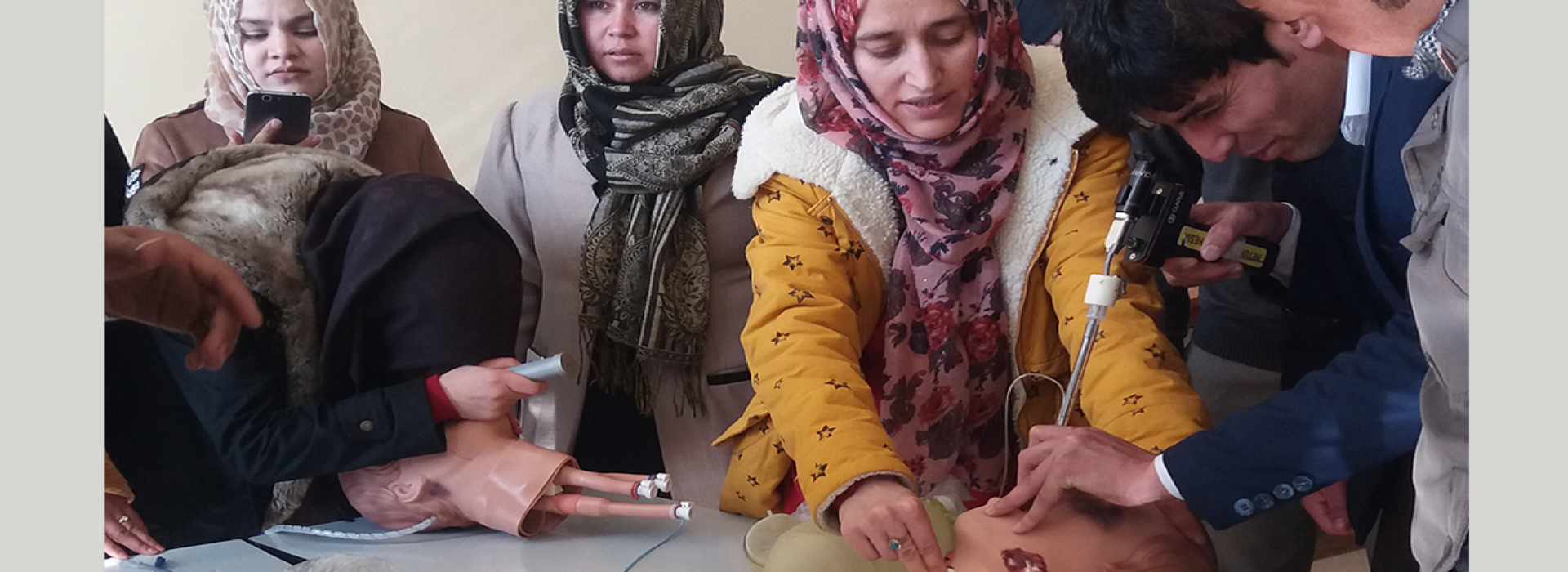
Dr. Julia Weinkauf Reflects on Physician Exchange in India
Each day I get up, go to work and do the best I can at being a physician Anesthesiologist and educator. I’m not unprepared- in my toolbox are my years of education, training, and experience. I also work side by side with other colleagues who have similarly resource-rich, long years of preparation, all of us thus armed to feel confident that we can capably do our job managing people’s health and lives, and teaching others to do it as well. But what if you weren’t so prepared? A little thought experiment:
What if there were 8 of you responsible for 200 students, both in the classroom and the hospital, as well as patients to care for? What if you’d had no formal specialty training to do the job you were expected to do? What if there was a real chance that an explosion would happen in your city today? Do you think you’d feel “burn-out?” Do you think you’d feel a high degree of “wellness?”
But you go to work anyway, and you also do the best you can. These are the conditions under which Anesthesiologists at the Kabul University of Medical Sciences (KUMS) work and teach. They aren’t in the military or the government or embracing a calling to do charitable work in extreme conditions. They just get up and go to work and take care of their families but in a clinical and educational resource vacuum I think we can’t imagine.
The University of Minnesota Department of Anesthesiology is engaging in a project to assist these deserving educators. As part of a USAID sub-grant awarded to the School of Nursing which also includes collaboration with faculty in Midwifery, Medical Lab Science, and Dentistry, we will host a series of exchanges for Afghan Anesthesiologists to be held in locations around the world throughout 2018. We will do our best to help them become better Anesthesiologists, better teachers, better consumers of information, and also to have better access to educational resources.
The first exchange was held in January in Manipal, India, focusing on teaching techniques, simulation, and acute peri-operative events. Already, our Afghan colleagues have put the equipment and skills to good use, hosting a Basic Life Support and intubation skills course for their students in Kabul. The next exchange will be held in Kigali, Rwanda in May, and will be a joint collaboration with Midwifery on safe obstetrics practices.
The project also includes over-arching goals of faculty development, syllabus revision and instructional design, which are woven into the subjects of each exchange.
We have high hopes for the outcomes of this project, though the time is short. As always, though, the small satisfactions are the best, like this email from Dr. Fahima after their return to Kabul describing her students training on the equipment that was sent with them: “If you were with us you could see how happy the [students] were, for working [with the] monekans [simulation mannequins]. They have a lot of interest they said to me…thanks from you.”
-Julia L Weinkauf, MD
The collaborative project is funded by a $1.2 million sub-award grant from FHI360, a large global development organization funded by the US Agency for International Development (USAID) to implement a 5-year, $96 million initiative strengthening higher education in Afghanistan.
Dr. Julia Weinkauf and Dr. Megan Olejniczak are the Anesthesiology technical leads for the project. They can be reached at weinkauf@umn.edu and meganjoy@umn.edu.
Carolyn Porta, PhD, MPH, RN, Assistant Professor and Director of Global Health for the University of Minnesota School of Nursing is the local principal investigator for the sub-grant. She can be contacted via email at porta@umn.edu.